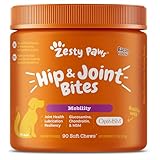When providing a balanced and nutritious diet for our canine companions, exploring alternative protein sources is often a topic of interest. One such source that has gained attention is heart meat. But is heart good for dogs?
This comprehensive guide delves into the nutritional benefits of including heart in your dog’s diet, considerations to remember, and how to incorporate it effectively.
Is Heart Good For Dogs?
Short Answer: Yes, heart meat is a safe, nutritious, healthy addition to a dog’s diet. It is a good source of protein, essential amino acids, vitamins, and minerals.
Understanding Canine Nutrition
Before we explore the benefits of feeding heart to dogs, it’s essential to understand the basics of canine nutrition. Dogs are primarily carnivores, which means they thrive on a diet rich in animal protein.
This protein provides essential amino acids, the building blocks for various bodily functions.
Can Dogs Eat Heart Meat?

Yes, dogs can eat heart meat, which can be a nutritious addition to their diet. Many commercial dog foods include organ meats like heart because they are a good source of essential nutrients.
Heart meat is a rich source of protein, vitamins, and minerals, including B vitamins like B12, iron, and zinc. These nutrients are essential for your dog’s overall health and well-being.
However, feeding heart meat in moderation and as part of a balanced diet is essential. It should not be the sole source of nutrition for your dog.
Always consult your veterinarian about incorporating new foods into your dog’s diet, especially if you have any concerns about allergies or specific dietary needs.
Benefits of Heart Meat For Dogs
1. High Protein Content
Heart meat is exceptionally rich in protein. It contains many essential amino acids that contributing to muscle development, immune function, and overall vitality in dogs.
Including a heart in your pup’s diet can benefit active or growing canines.
2. Rich in Vitamins and Minerals
Heart meat is a powerhouse of essential nutrients. It’s notably high in vitamin B12, which supports nerve function and the production of red blood cells.
Heart organ meat is a good source of iron, zinc, and selenium, which are crucial in a dog’s overall health.
3. Low in Fat
Compared to other organ meats, the heart is relatively low in fat. This makes it an excellent protein source for furry friends that may need to watch their fat intake, such as those prone to obesity or with specific dietary restrictions.
Health Risks
-
Imbalance of Nutrients: If heart meat is the sole or primary source of nutrition, it could lead to an imbalance in essential nutrients. While it’s rich in specific vitamins and minerals, it may lack others necessary for a dog’s health.
-
High Cholesterol: Heart meat, like other organ meats, is relatively high in cholesterol. Feeding excessively or to a canine with specific dietary restrictions could lead to health issues.
-
Potential Allergies: Some dogs may have allergies or sensitivities to specific proteins, including those found in heart meat. Monitoring your dog for any signs of allergic reactions after introducing a new food is essential.
-
Bacterial Contamination: Raw or undercooked heart meat can risk bacterial contamination, such as Salmonella or E. coli, harming dogs and humans. Cooking the beef thoroughly can help reduce this risk.
-
Digestive Upset: Introducing new foods, including heart meat, suddenly and in large quantities can lead to digestive upset like diarrhea or vomiting, mainly if your dog’s digestive system is not accustomed to it.
Related Post: Are Oil Pastels Toxic To Dogs?
Considerations for Feeding Heart to Dogs
While heart meat offers numerous benefits, it’s essential to consider a few factors:
1. Sourcing Quality Meat
Opt for high-quality, lean-heart meat from reputable sources. Choose organic or grass-fed options to ensure your dog receives the best possible nutrients.
2. Balance is Key
While heart is a nutritious addition to your dog’s diet, it shouldn’t be the sole protein source. Rotate different meats to provide a wide range of nutrients and prevent nutrient imbalances.
3. Proper Preparation
Before feeding, ensure the heart meat is thoroughly cooked to eliminate potential bacteria or parasites. Avoid seasoning or using additives, as some spices can harm dogs.

Related Post: Can Dogs Eat Veal Dog Food?
Final Thoughts: Is Heart Good For Dogs?
In conclusion, heart meat can be a valuable addition to your dog’s diet, offering a substantial protein source and a host of essential vitamins and minerals. Sourced and prepared correctly, it can contribute to a balanced and nutritious canine diet.
However, remember that variety is vital; the heart should be part of a diverse protein rotation. It’s imperative to seek advice from your veterinarian before implementing any substantial alterations to your dog’s diet, particularly if they have specific dietary needs or underlying health issues.
References:










![Can Dogs Eat Blood? 7 Side Effects [Expert Opinion]](https://petskor.com/wp-content/uploads/2022/04/Webp.net-resizeimage-12.jpg)
